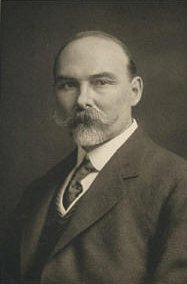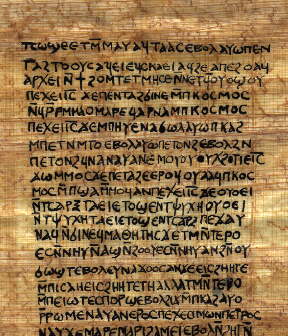
Andrew Phillip Smith (born 1966) is a Welsh writer who has written books on Gnosticism, [1] Cathars and Mandaeans.

Andrew Phillip Smith (born 1966) is a Welsh writer who has written books on Gnosticism, [1] Cathars and Mandaeans.
He grew up in Penarth, south Wales and attended the University College of Wales, Swansea. [2] He has also lived in London and then in rural California and now lives in Cadoxton, Vale of Glamorgan with his wife. [2]
He also runs the Bardic Press, publishers of Hafiz, Omar Khayyam, Early Christianity, Celtic Mythology, Fourth Way, [3] is the editor of the magazine The Gnostic: A Journal of Gnosticism, Western Esotericism and Spirituality. [4]
He has been interviewed several times about his writing, by Fortean Times in March 2010, by Zany Mystic, [5] by Spinx Radio. [6] [7] and several times by Miguel Conner on Aeon Byte, [8] [9] He has contributed articles to New Dawn Magazine, [10] Fortean Times and Mind, Body Spirit published by Watkins Publishing . [11]
His published works include:
Catharism was a Christian dualist or Gnostic movement between the 12th and 14th centuries which thrived in Southern Europe, particularly in northern Italy and southern France. Followers were described as Cathars and referred to themselves as Good Christians; in modern times, they are mainly remembered for a prolonged period of religious persecution by the Catholic Church, which did not recognize their unorthodox Christianity.

Gnosticism is a collection of religious ideas and systems that coalesced in the late 1st century AD among Jewish and early Christian sects. These various groups emphasized personal spiritual knowledge (gnosis) above the orthodox teachings, traditions, and authority of religious institutions. Gnostic cosmogony generally presents a distinction between a supreme, hidden God and a malevolent lesser divinity who is responsible for creating the material universe. Consequently, Gnostics considered material existence flawed or evil, and held the principal element of salvation to be direct knowledge of the hidden divinity, attained via mystical or esoteric insight. Many Gnostic texts deal not in concepts of sin and repentance, but with illusion and enlightenment.

The Gospel of John is the fourth of the four canonical gospels. It contains a highly schematic account of the ministry of Jesus, with seven "signs" culminating in the raising of Lazarus and seven "I am" discourses culminating in Thomas' proclamation of the risen Jesus as "my Lord and my God". The gospel's concluding verses set out its purpose, "that you may believe that Jesus is the Christ, the Son of God, and that believing you may have life in his name."

Irenaeus was a Greek bishop noted for his role in guiding and expanding Christian communities in the southern regions of present-day France and, more widely, for the development of Christian theology by combating heterodox or Gnostic interpretations of Scripture as heresy and defining proto-orthodoxy. Originating from Smyrna, he had seen and heard the preaching of Polycarp, who in turn was said to have heard John the Evangelist, and thus was the last-known living connection with the Apostles.

Marcionism was an early Christian dualistic belief system that originated with the teachings of Marcion of Sinope in Rome around the year 144. Marcion was an early Christian theologian, evangelist, and an important figure in early Christianity. He was the son of a bishop of Sinope in Pontus. About the middle of the 2nd century (140–155) he traveled to Rome, where he joined the Syrian Gnostic Cerdo.
Ecclesia Gnostica is an open sacramental neo-Gnostic church in Los Angeles. It has ordained clergy and conducts regular sacramental services, including two weekly Masses, as well as monthly and seasonal services in accordance with the liturgical calendar. It has active parishes in Seattle, Washington; Portland, Oregon; and Austin, Texas. The church and its affiliate organisation, The Gnostic Society, attempt to "advance the study, understanding, and the individual experience of Gnosis."
Valentinus was the best known and, for a time, most successful early Christian Gnostic theologian. He founded his school in Rome. According to Tertullian, Valentinus was a candidate for bishop but started his own group when another was chosen.

The Gospel of Philip is a non-canonical Gnostic Gospel dated to around the 3rd century but lost in medieval times until rediscovered by accident, buried with other texts near Nag Hammadi in Egypt, in 1945.

The Gospel of Mary is a non-canonical text discovered in 1896 in a fifth-century papyrus codex written in Sahidic Coptic. This Berlin Codex was purchased in Cairo by German diplomat Carl Reinhardt.

The Gospel of the Truth is one of the Gnostic texts from the New Testament apocrypha found in the Nag Hammadi codices ("NHC"). It exists in two Coptic translations, a Subakhmimic rendition surviving almost in full in the first Nag Hammadi codex and a Sahidic in fragments in the twelfth codex.
Valentinianism was one of the major Gnostic Christian movements. Founded by Valentinus in the 2nd century AD, its influence spread widely, not just within Rome but also from Northwest Africa to Egypt through to Asia Minor and Syria in the East. Later in the movement's history it broke into an Eastern and a Western school. Disciples of Valentinus continued to be active into the 4th century AD, after the Roman Emperor Theodosius I issued the Edict of Thessalonica, which declared Nicene Christianity as the State church of the Roman Empire.

George Robert Stow Mead was an English historian, writer, editor, translator, and an influential member of the Theosophical Society, as well as the founder of the Quest Society. His works dealt with various religious and philosophical texts and traditions, including Neoplatonism, Hermeticism and Gnosticism.
The Johannite Church, is a Gnostic Christian denomination founded by the French priest Bernard-Raymond Fabré-Palaprat in 1804.

The Thomasines were a Christian sect that originated in the first or the second century who especially revered the apostle Thomas and who originated the gospel of Thomas. The sect held esoteric, mystical, and ascetic ideas. They have been associated with the proto-Gnostics. However modern critics have disputed their affiliation with Gnosticism, especially because they lack many Gnostic beliefs.
In many Gnostic systems, various emanations of God are known by such names as One, Monad, Aion teleos, Bythos, Proarkhe, Arkhe, and Aeons. In different systems these emanations are differently named, classified, and described, but emanation theory is common to all forms of Gnosticism. In Basilidian Gnosis they are called sonships ; according to Marcus, they are numbers and sounds; in Valentinianism they form male/female pairs called syzygies.

Rami M. Shapiro, commonly called "Rabbi Rami", is an author, teacher, and speaker on the subjects of liberal Judaism and contemporary spirituality.
John Michael Greer is an American author and druid who writes on ecology, politics, appropriate technology, oil depletion and the occult.
Stevan L. Davies is an author and Emeritus Professor of Religious Studies at Misericordia University in Dallas, Pennsylvania. His most notable work has been in the analysis of Christian apocrypha, especially the Gospel of Thomas. He is married to Sally Watkins Davies and has two children, Michael L. Davies and Meredith G. Russell.